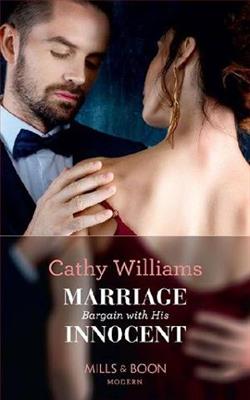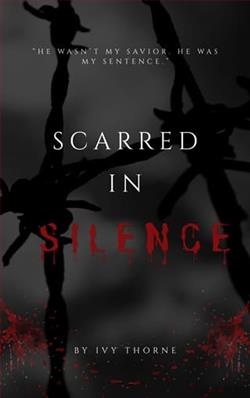Page 17 of The Paid Companion
Elenora looked up and saw a tiny bird of a woman who appeared to be in her mid thirties. She had delicate features and bright hazel eyes. Her hair, dressed in a simple chignon, was the color of dark honey. Her gown appeared to be relatively new and made of expensive fabric, but it was not in the latest style.
“Allow me to present Margaret Lancaster,” Arthur said. “She is the relative I mentioned, the one who will be staying here while I conduct my business affairs. She will go about with you and lend her services as a chaperone so that your reputation will not suffer while you are in this household.”
“Mrs. Lancaster.” Elenora dropped another curtsy.
“You must call me Margaret. After all, as far as the world is concerned, you will soon be a member of the family.” Margaret started down the circular staircase “My, this is going to be so exciting. I am quite looking forward to the adventure.”
Arthur went back to his desk and sat down. He looked at Elenora and Margaret in turn.
“As I have explained, I want the pair of you to do whatever is necessary to distract the attentions of Society so that I can conduct my business affairs with the greatest degree of privacy possible.”
“Yes, of course,” Elenora murmured.
“You will make arrangements immediately to attend the most important and most fashionable balls and soirées so that everyone in Society will see that I really do have a fiancée.”
“I understand,” Elenora said.
He looked at Margaret. “As Elenora’s chaperone and female guide, you will deal with the details involved in making certain that she creates an immediate and convincing impression on the Polite World.”
“Yes, Arthur.” Margaret’s expression seemed somewhat strained.
“She will need suitable gowns, hats, gloves and all the fripperies that go with them,” Arthur continued. “Everything must be in the most current mode, of course, and purchased from the right shops. You know how critical fashion is in Society.”
There was a short pause during which Margaret seemed to collect herself.
“Yes, Arthur,” she said again. This time her smile was decidedly shaky.
Elenora glanced at her in surprise, wondering what was amiss.
Arthur, however, did not seem to be aware that anything was wrong.
“Very, well, I think that is all for now,” he said, reaching for a leather-bound journal and a pen. “You may both go. I’m sure you have a number of things to do to prepare yourselves. Let me know if you have any questions.”
Elenora wondered if he realized that he was dismissing them as if they were members of his staff. Of course, she reminded herself, in her case that was the simple truth.
Margaret’s relationship to him was a different matter entirely, but to Elenora’s astonishment, the other woman did not appear to be offended. In fact she seemed suddenly desperate to escape the library.
Elenora thought about her reaction of a moment before, when Arthur had casually informed her that she would be responsible for all matters of fashion and style.
She was fairly certain that what she had glimpsed in Margaret’s eyes was an expression of glazed horror.
Arthur waited until the door closed behind the two women. Then he put aside the journal and got to his feet. He went to stand at the window facing out into the garden.
He knew that Elenora suspected that he had not told her everything. She was right. But he considered it best that she did not know the full truth. There was no need to tell Margaret, either. Both women would find it easier to act their parts if they did not know what had really prompted him to write the play in which they were performing.
He remained there in front of the window for a long time, staring out into the misty garden and thinking about how much he disliked this house.
His grandfather had brought him here to live shortly after his parents had died in an inn fire. He had been six years of age at the time. He had not known his grandfather until then because he had never met him. The old earl had been furious with his son for making a runaway marriage. Arthur’s mother had been a young lady possessed of neither fortune nor social connections. The old man had refused to receive her or his grandson.
His grandfather had certainly known how to hold a grudge, Arthur thought.
But the shock of losing his son in the fire had forced the old man to realize that Arthur was the only heir that he was going to get. He had brought his grandson back to the big, gloomy house in Rain Street, and then he had dedicated himself to the task of ensuring that Arthur did not follow in what he saw as his son’s romantic, irresponsible footsteps.
He had learned his lessons well, Arthur thought. His grandfather had drilled his obligations and responsibilities into him from that very first day. Ten years later, when he had lain on his deathbed, the old man had still been at his self-appointed task. His last words to Arthur had been, “Remember, you are the head of the family. It is your duty to take care of the rest of them.”
The only bright spots during the decade he had spent with his grandfather had occurred during frequent extended visits to the home of Arthur’s eccentric great-uncle, George Lancaster.
It was Uncle George who had provided the positive, supportive influence that had enabled him to weather the old earl’s bleak and rigid temperament, Arthur thought. Unlike the others in his vast and far-flung family, George Lancaster had not expected anything more of him than that he be what he was, a growing boy with a boy’s hopes and dreams and curiosity.















